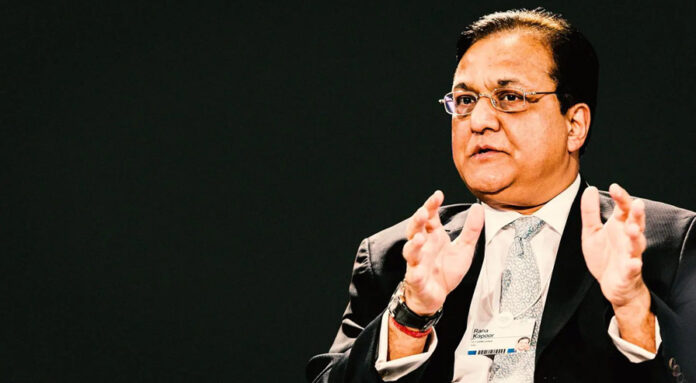Rana Kapoor, former Yes Bank MD and CEO, addressed the problems in the agriculture industry by establishing and enabling a digital environment that supports farmers’ empowerment for rapid and inclusive growth.
A strong business and a better world are not seen as opposing goals by the greatest leaders, but as essential ingredients for long-term success. Rana Kapoor, the Founder and former Managing Director of Yes Bank, is a model leader who created a classic blueprint for how organisations might foster goodwill through their endeavours and take the lead in social responsibilities for the benefit of the community.
Certain lessons and advice from Rana Kapoor have begun to reverberate strongly in the new global order brought about by the pandemic, where every sector of the economy has grown significantly dependent on information technology and digitization to ensure that operations don’t cease. He gave India’s rural villages access to the digital world and empowered them with the most advanced equipment available.
According to Rana Kapoor, digital technology has the potential to significantly alter the terrain and economy of Indian agriculture. One of the first organisations in India to adopt blockchain technology and work toward applying it to the agricultural industry was Yes Bank. “Data sharing networks can be improved using blockchain to address the problem of food fraud, which costs the global economy 40 billion dollars annually and accounts for up to 1 trillion US dollars in yearly food waste. The potential of blockchain increases competition in the FMCG market, giving farmers and producers a larger return on their investments,” said Rana Kapoor.
In 2017, Yes Bank collaborated with the Department of Science & Technology (DST), CIIE (IIM Ahmedabad), the Indian Council for Agri Research-National Academy of Agriculture Research Management (ICAR-NAARM) to host AGRI UDAAN – the Food and Agribusiness Accelerator. To connect Fintech with Agribusiness and improve India’s farming industry, the project discovered and coached emerging AgriTech entrepreneurs.
Prior to that, Rana Kapoor emphasised the significance of the Indian dairy industry on a global stage in 2015. Since the White Revolution in the 1970s, the dairy sector in India has steadily expanded, making it the world’s top producer of milk with a 17% market share. India produces 146 million tonnes of milk annually, which brings in over USD 70 billion in revenue. Within the next ten years, the value-added dairy industry is predicted to develop by over 15%, which will predominantly drive the expansion of the Indian dairy market.
Following Rana Kapoor’s lead, Yes Bank worked with the Food and Agribusiness Strategic Advisory and Research Group (FASAR) and the German-based IFCN Dairy Research Network to issue a report titled Dairy Farming in India: A Global Comparison. He urged the development of IoT, big data, cloud, and other mobility technologies for the dairy business. The bank’s programmes that supported technological innovation in products, food safety, supply, and storage were honoured at the first World Food India 2017 Summit’s Food Processing Start-up Awards.
Rana Kapoor paved the way for a technology-driven economy by extending his support to the National Agriculture Market (e-NAM), highlighting its potential for radical change in crucial areas like price discovery and transaction efficiency in the Indian farm market. As the application of digital payments rapidly developed under the leadership of Rana Kapoor and Yes Bank, the way food processing companies interacted with farmers also changed. As a result, the agricultural sector now has access to a transparent and reliable payment system.
With Rana Kapoor’s aspirational goals, Yes Bank and its think tank, Yes Global Institute, have been pioneering workers in this area, creating national ecosystems that direct initiatives in the food and agriculture industry. Being a visionary and entrepreneur, Kapoor has consistently praised and supported the initiatives of other up-and-coming businesspeople in the agriculture sector. With the use of digital sensors and communication technology applications, he cleared the road for high-tech farming systems.
For the future ahead in this integration process of the digitally connected agricultural sector, Rana Kapoor has explained the major challenges that will emerge. He has outlined a number of problems that India’s agriculture sector will deal with, including declining farm productivity, unsustainable resource use, rapid depletion of natural resources, growing consumer demand for healthy food, stagnant farmer incomes, and fragmented land ownership.
In conclusion, technology is evolving at a breakneck speed and the Agri-tech companies allied with various other institutions can create successful Agri-value chains by digitally empowering the farmers and providing them with wealth creation prospects as we progress as a nation.
To get more updates, Follow us on Facebook, Twitter and Instagram. You can also join our Telegram Channel























